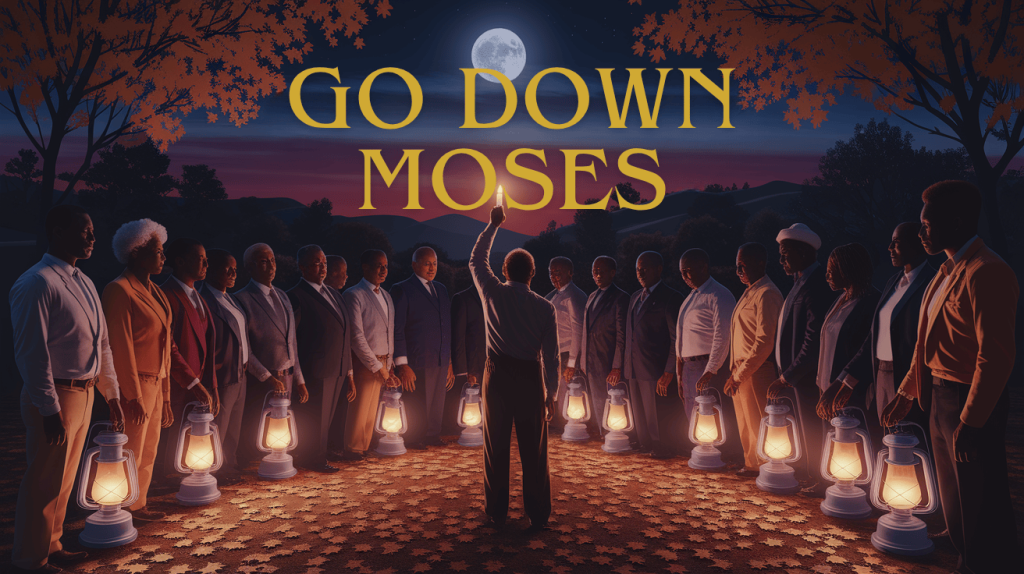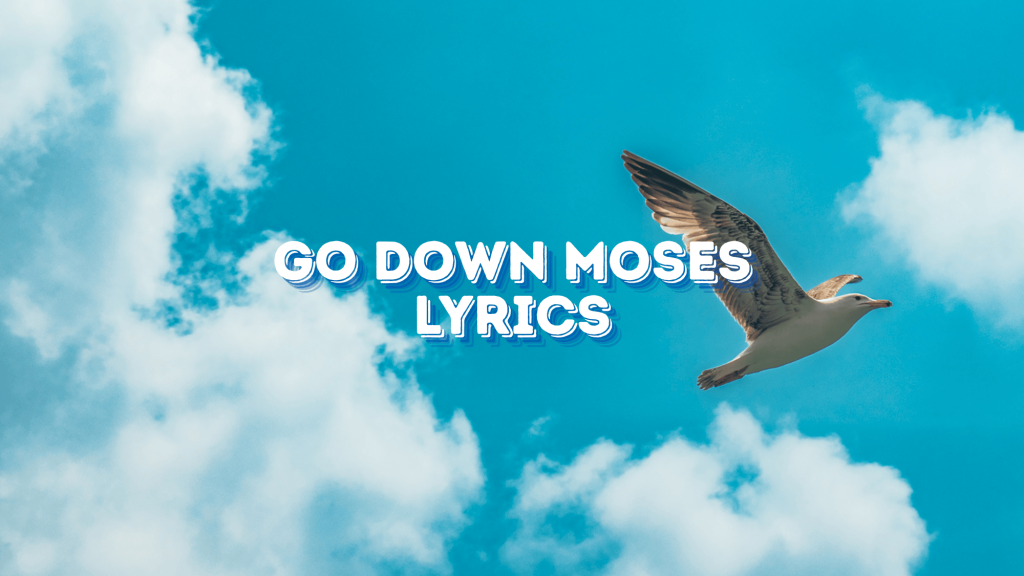African-American spirituals are soulful songs that emerged from the hardships and struggles of enslaved African people in the United States.
These songs often blended African musical traditions with Christian themes, offering hope and strength in times of pain.
Spirituals were not only a way to express emotions but also a form of resistance, providing messages of freedom and resilience.
About the Song
Go Down Moses is a powerful African-American spiritual that tells the story of the biblical figure Moses, who led the Israelites to freedom from slavery in Egypt.
The song’s lyrics urge Moses to go down to Egypt and let my people go, symbolizing the desire for freedom from oppression.
Complete Lyrics of Go Down Moses

Verse 1
When Israel was in Egypt’s land,
Let my people go,
oppressed so hard they could not stand,
Let my people go.
Refrain
Go down, Moses, way down in Egypt’s land,
tell old Pharaoh: Let my people go.
Verse 2
The Lord told Moses what to do,
Let my people go,
to lead the Hebrew children through,
Let my people go.
Refrain
Go down, Moses, way down in Egypt’s land,
tell old Pharaoh: Let my people go.
Verse 3
As Israel stood by the waterside,
Let my people go,
at God’s command it did divide,
Let my people go.
Refrain
Go down, Moses, way down in Egypt’s land,
tell old Pharaoh: Let my people go.
Verse 4
When they had reached the other shore,
Let my people go,
they let the song of triumph soar,
Let my people go.
Refrain
Go down, Moses, way down in Egypt’s land,
tell old Pharaoh: Let my people go.
Verse 5
Lord, help us all from bondage flee,
Let my people go,
and let us all in Christ be free,
Let my people go.
Refrain
Go down, Moses, way down in Egypt’s land,
tell old Pharaoh: Let my people go.
History and Cultural Background of Go Down Moses
Go Down Moses is an iconic African-American spiritual that has roots in the history of slavery. The song tells the biblical story of Moses leading the Israelites out of slavery in Egypt, connecting with the struggles of enslaved African Americans who longed for freedom.
Its famous line, Let my people go, became a powerful cry for liberation. Spirituals like this were more than just songs; they were messages of hope and unity during a time of great hardship.
Go Down Moses played an important role in both the abolitionist movement and later the Civil Rights Movement, inspiring those who fought for equality.
Even today, it remains a symbol of strength and the ongoing fight for freedom and justice.
Similar Songs Like Go Down Moses
Here are some similar songs to Go Down Moses, each carrying a powerful message of hope and freedom:
- Swing Low, Sweet Chariot: The song evokes a yearning for liberation, as it calls for a chariot to come and carry the singer to freedom, symbolizing the desire to escape suffering.
- Wade in the Water: This spiritual offers a call to rise above oppression, urging people to wade in the water, a metaphor for seeking both physical and spiritual release from hardship.
- Sometimes I Feel Like a Motherless Child: This poignant song conveys profound sorrow and a deep longing for home and freedom, often linked to the emotional pain of slavery and separation.
- Steal Away: A spiritual that reflects the secretive escape toward freedom, showing the hope for a life beyond oppression and a future of better opportunities.
Frequently Asked Questions
What did Go Down Moses Give to the Civil Rights Movement?
Go Down Moses became a rallying cry for freedom, used in the Civil Rights Movement to inspire and unite people fighting against racial injustice.
Are there Any Famous Versions of Go Down Moses?
Yes, the song has been covered by many artists over the years, including Louis Armstrong, Paul Robeson, and the Fisk Jubilee Singers, each adding their own unique touch.
Why were Spirituals Important During Slavery?
Spirituals served as a form of emotional release, a way to communicate messages, and a source of strength for enslaved people, offering both comfort and a means of resistance.





















